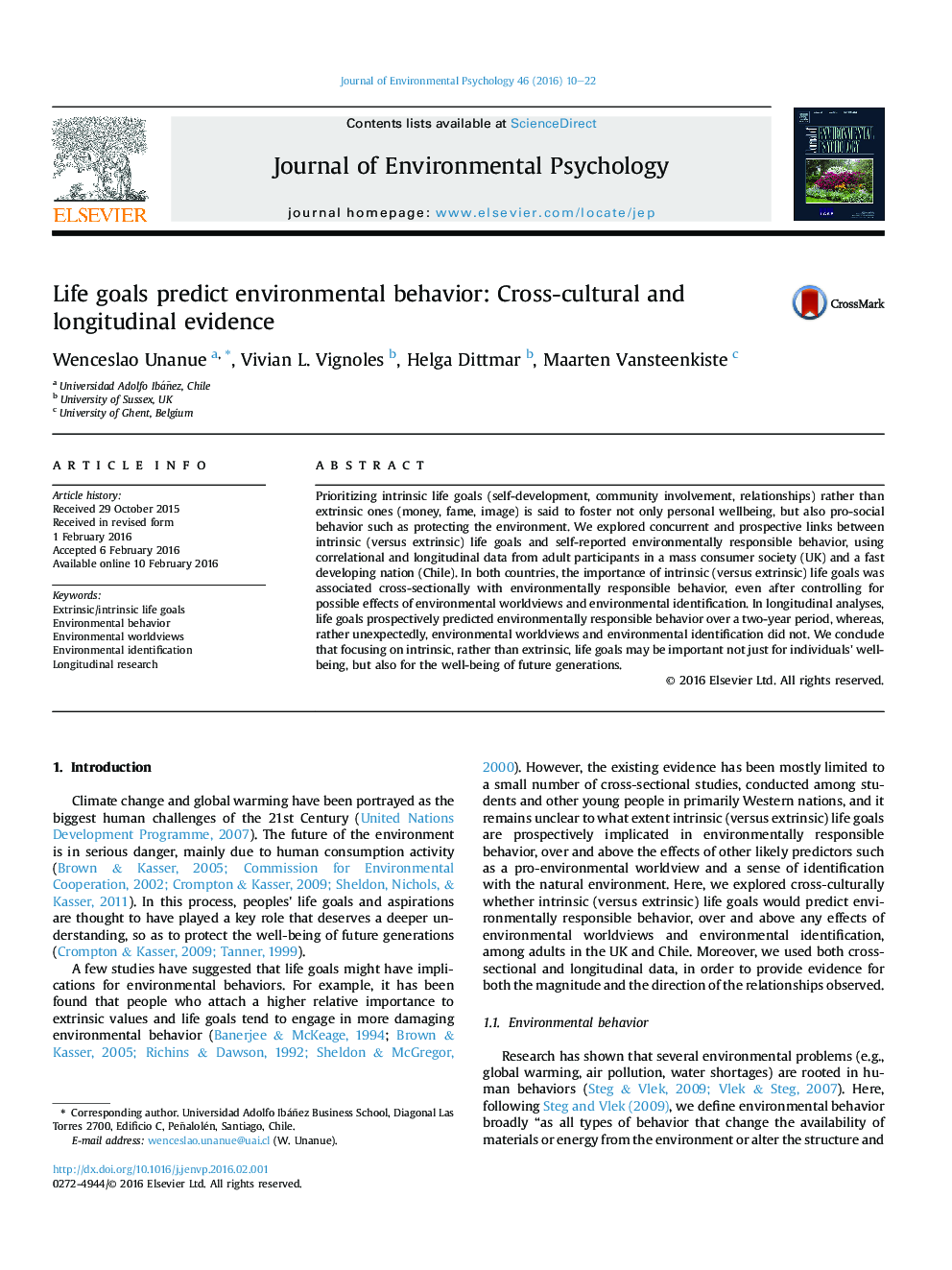| کد مقاله | کد نشریه | سال انتشار | مقاله انگلیسی | نسخه تمام متن |
|---|---|---|---|---|
| 885567 | 1471748 | 2016 | 13 صفحه PDF | دانلود رایگان |
• Intrinsic (vs. extrinsic) life goals predict environmentally responsible behaviour.
• This is shown in a mass consumer society (UK) and a developing nation (Chile).
• Longitudinal data over 2 years supports a prospective link.
• Findings persist when controlling for environmental worldviews and identification.
• Fostering intrinsic (vs. extrinsic) life goals may benefit future generations.
Prioritizing intrinsic life goals (self-development, community involvement, relationships) rather than extrinsic ones (money, fame, image) is said to foster not only personal wellbeing, but also pro-social behavior such as protecting the environment. We explored concurrent and prospective links between intrinsic (versus extrinsic) life goals and self-reported environmentally responsible behavior, using correlational and longitudinal data from adult participants in a mass consumer society (UK) and a fast developing nation (Chile). In both countries, the importance of intrinsic (versus extrinsic) life goals was associated cross-sectionally with environmentally responsible behavior, even after controlling for possible effects of environmental worldviews and environmental identification. In longitudinal analyses, life goals prospectively predicted environmentally responsible behavior over a two-year period, whereas, rather unexpectedly, environmental worldviews and environmental identification did not. We conclude that focusing on intrinsic, rather than extrinsic, life goals may be important not just for individuals' well-being, but also for the well-being of future generations.
Journal: Journal of Environmental Psychology - Volume 46, June 2016, Pages 10–22
